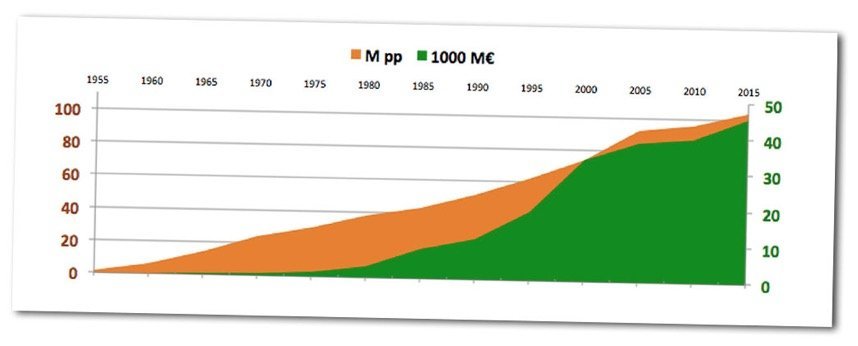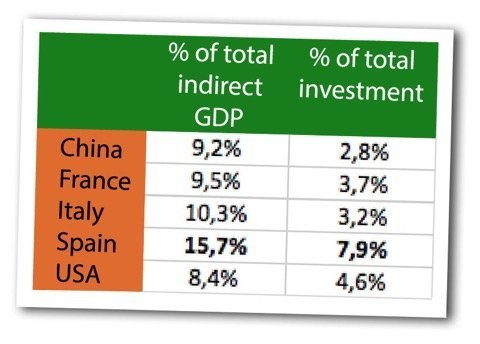It makes a lot of sense that Spain is a worldwide reference in the leisure sector. Remember that Spain already received its first million holidaymakers in 1954. Throughout the next 20 years, tourism grew at annual rates between 15-25%, until reaching a share of 16% of all global tourists.
Benidorm in 1955 and in 2005
They called this phenomenon a “boom”, even a “miracle” and it was consolidated in the 80s and 90s with the incorporation of the Spanish into the tourist public. For more than 40 years, Spain has kept itself in the top 5 worldwide destinations in absolute numbers, both in visitors and revenue, together with the United States, France, China and Italy.
This year, 2014, the Spanish tourist industry has returned to lead the economic recovery of the country after the economic crisis. Whilst the forecast for growth for the economy as a whole is 0.9%, the mid-year data anticipates a new record in visitors, revenue and employment generation, resulting in an increase of GDP at a rate of 2.4%.
However, the total number of visitors or currencies that a country receives is not only what matters, but the relative importance that tourism has in its economy. In this regard, Spain takes first place, vastly exceeding the importance that tourism has in other comparable destinations. According to the World Travel & Tourism Council, adding the direct GDP, the indirect and the induced, the weight of tourism in the Spanish economy exceeds 15%, the largest number amongst the top 20 world economies and the greatest amongst the main tourist rivals.
The boom of the 60-70s wouldn’t have been possible without the exponential development of the supply to respond to the enormous tourist demand. In a very short time, Spain had to construct transport infrastructures and accommodation, restore historical attractions, fit out the beaches, train professionals and develop tourism quality standards. All this experience has been consolidated through the decades, making tourism-related Spanish companies leaders in the development of other vacation destinations, exporting its proficiencies, skills and knowledge. After so many years of global tourism, it’s only logical that Spain exports leisure technology.








